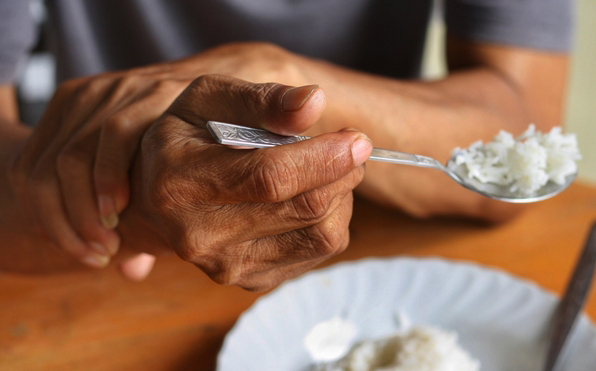How diabetes affects the heart
- Posted on 17/11/2023 12:41
- Film
- By abelozih@sante-education.tg

Extract from the article: Diabetes is a condition in which sugar is permanently present in the blood. Nazife Lawani, Medical Assistant and Specialist in Diabetes Care at the Centre Hospitalier Préfectoral (CHP) de Badou, points out that complications of the heart and arteries
Diabetes
is a condition in which sugar is permanently present in the blood. Nazife
Lawani, Medical Assistant and Specialist in Diabetes Care at the Centre
Hospitalier Préfectoral (CHP) de Badou, points out that complications of the
heart and arteries are 2 to 4 times more frequent in people with diabetes than
in the rest of the population. Combined with other factors such as high blood
pressure, smoking and high cholesterol, the risk of developing cardiovascular
complications increases. Balancing your diabetes and being aware of and acting
jointly on other risk factors are essential ways of avoiding cardiovascular
disease and limiting its effects.
Diabetes
can lead to cardiovascular complications or heart, vascular or arterial
disorders. According to Nazife Lawani, Medical Assistant and Specialist in
Diabetes Care at Badou Hospital, diabetes also affects the large blood vessels,
including the arteries in the neck, legs and heart. Cardiovascular disease is
the most common cause of death in people with diabetes.
« Because
of chronic hyperglycaemia or its association with other cardiovascular risk
factors such as excess blood triglycerides, obesity, high blood pressure and a
sedentary lifestyle, diabetes encourages the development of fatty plaques or
atheroma, which form and spread over the inner walls of the arteries »,
explains Nazife Lawani, Medical Assistant and Specialist in Diabetes Care. As
atherosclerotic plaque thickens, it narrows the diameter of the artery
(stenosis), gradually impeding the flow of blood to the organs and depriving
them of oxygen. « Eventually, these plaques can completely block the
artery.When the plaques are unstable, they can rupture and lead to the
formation of clots (thrombosis), which end up suddenly blocking the
artery.Excess sugar in the blood encourages the formation of these clots.
Initially, atherosclerotic plaques often develop without symptoms, but if not
treated early, they can lead to cardiovascular accidents.The organs that depend
on the blood supply carried by these blood vessels will suffer, and some areas
may even be destroyed », explains Nazife Lawani, Medical Assistant,
Specialist in Diabetes Care.
Nazife
Lawani stresses that the most common types of damage are to the coronary
arteries: « coronary thrombosis, for example, is the formation of a
clot in the arteries that supply blood to the heart. It can lead to myocardial
infarction or heart attack; arteries in the neck can cause vascular accidents
in the brain, or strokes; arteries in the lower limbs can cause obliterative
arteriopathy of the lower limbs (AOMI) », explains the specialist.
William O




